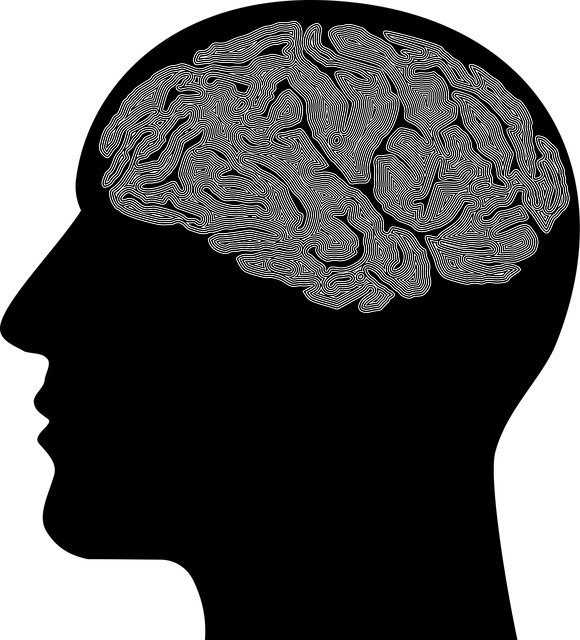Resilience is a critical component of mental well-being, as highlighted by the Recovery, Resilience, and Mental Health (RFM) framework. In Lakewood, with Kaiser's comprehensive mental health coverage, building resilience through initiatives like Mindfulness Meditation and Social Skills Training enhances accessibility to support for residents facing high-stress lives. These strategies aim to reduce burnout among healthcare providers and improve overall mental health outcomes. By prioritizing mental well-being, Lakewood seeks to create a supportive culture where resilience flourishes, addressing the need for accessible, top-tier mental health services, as evidenced by Kaiser's holistic approach.
“In today’s challenging landscape, building resilience is paramount for community well-being. This article explores the powerful synergy between RFM (Risk, Frequency, and Money) analysis and resilience-building exercises. We delve into how these strategies can foster mental health support in Lakewood, addressing a pressing need highlighted by recent times.
With a focus on ‘Lakewood does Kaiser cover mental health?’, we navigate through proven implementation guides, step-by-step resilience exercise plans, and evaluation metrics to measure the profound impact of RFM programs.”
- Understanding RFM and Its Role in Resilience Building
- The Significance of Mental Health Support in Lakewood
- Kaiser's Approach to Covering Mental Health Services
- Implementing Resilience Exercises: A Step-by-Step Guide
- Measuring Success: Evaluating the Impact of RFM Programs
Understanding RFM and Its Role in Resilience Building

Resilience is a crucial aspect of mental well-being, enabling individuals to navigate life’s challenges and adapt to change. RFM (Recovery, Resilience, and Mental Health) is a framework that recognizes the importance of building resilience as a key component in recovery from various mental health conditions. Lakewood does Kaiser cover mental health services, making access to support more accessible for those seeking it.
The RFM model emphasizes that by fostering resilience, individuals can better manage stress, cope with adversity, and enhance their overall quality of life. This approach is particularly relevant for mental health professionals who often work with clients facing significant challenges. Public Awareness Campaigns Development and Risk Management Planning for Mental Health Professionals play a vital role in educating both practitioners and the public about the value of resilience-building exercises. Social Skills Training, another important aspect, can help individuals develop coping mechanisms and strengthen their support networks, contributing to improved mental health outcomes.
The Significance of Mental Health Support in Lakewood

In Lakewood, the significance of mental health support cannot be overstated, especially considering the high-stress nature of many residents’ lives. With a growing awareness of the impact of mental well-being on overall health and productivity, there’s a pressing need for accessible and comprehensive services. This is where Kaiser’s coverage plays a pivotal role, offering Lakewood residents a safety net through its mental health benefits. However, beyond insurance coverage, initiatives like Mindfulness Meditation classes and advocacy for Mental Health Policy Analysis can foster a culture of resilience and support.
The implementation of Burnout Prevention Strategies for Healthcare Providers is particularly crucial in Lakewood, given the city’s healthcare workforce demands. These strategies not only enhance individual well-being but also ensure the sustainability and quality of local healthcare services. By prioritizing mental health, Lakewood can transform its landscape from one dominated by stress and burnout to a vibrant environment where resilience and recovery thrive.
Kaiser's Approach to Covering Mental Health Services

Lakewood residents often wonder: does Kaiser cover mental health services? The answer lies in their comprehensive approach to healthcare, which prioritizes holistic well-being. Kaiser’s strategy involves integrating various exercises and techniques into their care plans, focusing on both physical and mental dimensions of health. This includes Self-Awareness Exercises designed to enhance individuals’ understanding of their thoughts and emotions, fostering a sense of control over their mental state.
Furthermore, Kaiser promotes Emotional Well-being Promotion Techniques as a way to build resilience in the face of life’s challenges. By encouraging open communication, teaching coping strategies, and providing platforms for stress management, these techniques aim to strengthen individuals’ emotional resilience. Social Skills Training is another vital component, focusing on improving interpersonal connections and fostering a supportive community, which is especially beneficial for mental health maintenance and promotion.
Implementing Resilience Exercises: A Step-by-Step Guide

Implementing Resilience Exercises: A Step-by-Step Guide
The first step in integrating resilience building exercises is to assess your current mental health resources and policies. Similar to how Lakewood does Kaiser cover mental health, organizations should examine their existing support structures. This involves understanding employee access to therapy, counseling services, and any wellness programs in place. Once these foundations are laid, the next phase focuses on selecting appropriate exercises aligned with individual needs and organizational culture. Activities like mental wellness journaling exercise guidance can empower employees to track their emotional well-being.
For effective implementation, consider a structured approach: start with small group sessions to foster open communication and create a safe space. Gradually expand to larger workshops, encouraging participation through interactive resilience training exercises. Incorporate both traditional methods and innovative practices to cater to diverse learning styles. Regularly review and update the program based on mental health policy analysis and advocacy, ensuring it aligns with current best practices and regulatory requirements.
Measuring Success: Evaluating the Impact of RFM Programs

Measuring success is a vital component when implementing Resilience, Flexibility, and Mindfulness (RFM) programs. Evaluating the impact of RFM initiatives goes beyond merely counting attendance; it involves assessing tangible improvements in participants’ mental well-being. One effective way to gauge progress is through pre-post program comparisons, tracking individuals’ self-reported mental health status, stress levels, and overall resilience. Tools such as standardized questionnaires or qualitative feedback can provide valuable insights into the program’s effectiveness.
For instance, evaluating Lakewood’s RFM programs in collaboration with Kaiser Mental Health Services could reveal significant reductions in symptoms associated with mental illness. Participants might report improved coping strategies, enhanced self-care routines, and increased confidence in managing stress. These findings would underscore the program’s success in fostering resilience and reducing the stigma surrounding mental health issues, aligning with broader mental illness stigma reduction efforts. Such evaluations are crucial for refining RFM programs and ensuring they meet the evolving needs of individuals seeking to build mental fortitude.
The implementation of RFM (Resilience, Flexibility, and Mastery) exercises in communities like Lakewood can significantly enhance mental health support. As discussed, Kaiser’s approach to covering mental health services plays a pivotal role in fostering resilience through accessible programs. Following the step-by-step guide provided, individuals and communities can effectively measure success by evaluating the impact of RFM programs on overall well-being. By understanding RFM and its benefits, Lakewood residents now have a clearer path towards building resilience and improving their mental health, with Kaiser’s coverage making these resources more accessible than ever.






